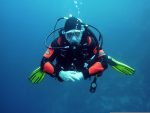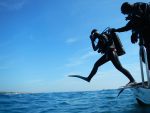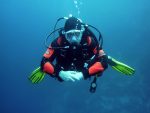Diving
-

The Benefits Of Taking Dive Instructor Courses
Dive instructors must be able to handle themselves in a variety of situations. Their training exposes them to many different situations and…
-

Padi Dive Instructor Courses
Padi Dive Instructor Courses are sought after throughout the world because this certification is one of the most respected in the world.…
-

How To Become A Better Scuba Diver In Koh Tao
If Scuba Diving Koh Tao is your thing, then it is most likely that you are thinking of the best ways that…
Search
Latest Posts
Latest Comments
No comments to show.
Categories
Archives
- May 2025 (19)
- April 2025 (121)
- March 2025 (90)
- February 2025 (195)
- January 2025 (90)
- December 2024 (25)
- November 2024 (102)
- October 2024 (229)
- September 2024 (4)
- August 2024 (6)
- July 2024 (6)
- June 2024 (3)
- May 2024 (1)
- April 2024 (2)
- February 2024 (1)
- January 2024 (2)
- July 2023 (21)
- June 2023 (12)
- May 2023 (242)
- April 2023 (241)
- March 2023 (20)
- February 2023 (12)
- January 2023 (234)
- December 2022 (368)
- November 2022 (19)
- October 2022 (14)
- September 2022 (497)
- August 2022 (180)
- July 2022 (22)
- June 2022 (14)
- May 2022 (7)
- April 2022 (484)
- March 2022 (203)
- February 2022 (29)
- January 2022 (11)
- December 2021 (7)
- November 2021 (6)
- October 2021 (435)
- September 2021 (236)
- August 2021 (17)
- July 2021 (8)
- June 2021 (2)
- May 2021 (2)
- April 2021 (480)
- March 2021 (161)
- February 2021 (20)
- January 2021 (8)
- December 2020 (4)
- November 2020 (3)
- October 2020 (6)
- September 2020 (12)
- August 2020 (6)
- July 2020 (7)
- June 2020 (26)
- May 2020 (180)
- April 2020 (41)
- March 2020 (8)
- February 2020 (12)
- January 2020 (74)
- December 2019 (1)
- November 2019 (24)
- October 2019 (7)
- September 2019 (3)
- August 2019 (9)
- July 2019 (147)
- June 2019 (83)
- May 2019 (4)
- April 2019 (89)
- March 2019 (56)
- February 2019 (5)
- January 2019 (134)
- December 2018 (63)
- November 2018 (6)
- October 2018 (6)
- September 2018 (16)
- August 2018 (7)
- July 2018 (12)
- May 2018 (35)
- April 2018 (19)
- January 2018 (1)
- December 2017 (7)
- November 2017 (3)
- October 2017 (2)
- August 2017 (79)
- July 2017 (41)
- June 2017 (4)
- May 2017 (3)
- March 2017 (1)
- February 2017 (6)
- January 2017 (9)
- December 2016 (16)
- November 2016 (14)
- October 2016 (2)
- September 2016 (1)
- June 2016 (1)
- May 2016 (9)
- February 2016 (9)
- December 2015 (4)
- November 2015 (1)
- October 2015 (6)
- September 2015 (17)
- August 2015 (7)
- July 2015 (19)
- June 2015 (6)
- May 2015 (5)
Tags
Newsletter
Lorem ipsum dolor sit amet, consectetur adipiscing elit, sed do eiusmod tempor incididunt ut labore et dolore magna aliqua.
Insert the contact form shortcode with the additional CSS class- "wydegrid-newsletter-section"

By signing up, you agree to the our terms and our Privacy Policy agreement.